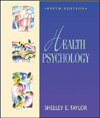| acute stress paradigm | A common current way of studying stress is to take people into the laboratory, expose them to short-term stressful events, and then observe the impact of that stress on their physiological, neuroendocrine, and psychological responses.
|
 |
 |
 |
| aftereffects of stress | Performance and attentional decrements that occur after a stressful event has subsided; believed to be produced by the residual physiological, emotional, and cognitive draining in response to stressful events.
|
 |
 |
 |
| allostatic load | This concept refers to the fact that physiological systems within the body fluctuate to meet demands from stress, a state called allostasis.
|
 |
 |
 |
| chronic strain | Stressful experience that is a usual but continually stressful aspect of life.
|
 |
 |
 |
| cognitive costs | An approach to the study of stress that emphasizes how stressful events tax perceptual and cognitive resources, draw off attention, or deplete cognitive resources for other tasks.
|
 |
 |
 |
| daily hassles | Minor daily stressful events; believed to have a cumulative effect in increasing the likelihood of illness.
|
 |
 |
 |
| fight-or-flight response | A response to threat in which the body is rapidly aroused and motivated via the sympathetic nervous system and the endocrine system to flee or attack a threatening stimulus; the response was first described by Walter Cannon in 1932.
|
 |
 |
 |
| general adaptation syndrome | Developed by Hans Selye, a profile of how organisms respond to stress; the general adaptation syndrome is characterized by three phases: a nonspecific mobilization phase that promotes sympathetic nervous system activity; a resistance phase, during which the organism makes efforts to cope with the threat; and an exhaustion phase, which occurs if the organism fails to overcome the threat and depletes its physiological resources.
|
 |
 |
 |
| helplessness | The belief that one is powerless to effect change in one’s environment.
|
 |
 |
 |
| learned helplessness | A response to helplessness in which an individual not only learns to cease responding in an environment in which helplessness was initially experienced but also ceases to respond in new environments in which adaptive responses are possible.
|
 |
 |
 |
| perceived stress | The perception that an event is stressful independent of its objective characteristics.
|
 |
 |
 |
| person-environment fit | The degree to which the needs and resources of a person and the needs and resources of an environment complement each other.
|
 |
 |
 |
| post-traumatic stress disorder (PTSD) | A syndrome that results after exposure to a stressor of extreme magnitude, marked by emotional numbing, reliving aspects of the trauma, intense responses to other stressful events, and other symptoms such as hyperalertness, sleep disturbance, guilt, or impaired memory or concentration.
|
 |
 |
 |
| primary appraisal | The perception of a new or changing environment as beneficial, neutral, or negative in its consequences; believed to be a first step in stress and coping.
|
 |
 |
 |
| reactivity | Predisposition to react physiologically to stress; believed to be genetically based in part; high reactivity is believed to be a risk factor for a range of stress-related diseases.
|
 |
 |
 |
| role conflict | Occurs when two or more social or occupational roles that an individual occupies produce conflicting standards for behavior.
|
 |
 |
 |
| secondary appraisal | The assessment of one’s coping abilities and resources and judgment as to whether they will be sufficient to meet the harm, threat, or challenge of a new or changing event.
|
 |
 |
 |
| stress | Appraising events as harmful, threatening, or challenging, and assessing one’s capacity to respond to those events; events perceived to tax or exceed one’s resources are perceived as stressful.
|
 |
 |
 |
| stress markers | Physiological changes, emotional reactions, or cognitive responses that are believed to be indicative of the amount of stress an individual is experiencing; stress markers are indirect measures of stress, because stress cannot itself be directly assessed.
|
 |
 |
 |
| stressful life events | Events that force an individual to make changes in his or her life.
|
 |
 |
 |
| stressors | Events perceived to be stressful.
|
 |
 |
 |
| sudden death syndrome | An abrupt loss of life, believed to be caused by the combination of a preexisting biological weakness and an extremely stressful and unexpected event, producing feelings of extreme hopelessness or helplessness.
|



 2003 McGraw-Hill Higher Education
2003 McGraw-Hill Higher Education

 2003 McGraw-Hill Higher Education
2003 McGraw-Hill Higher Education